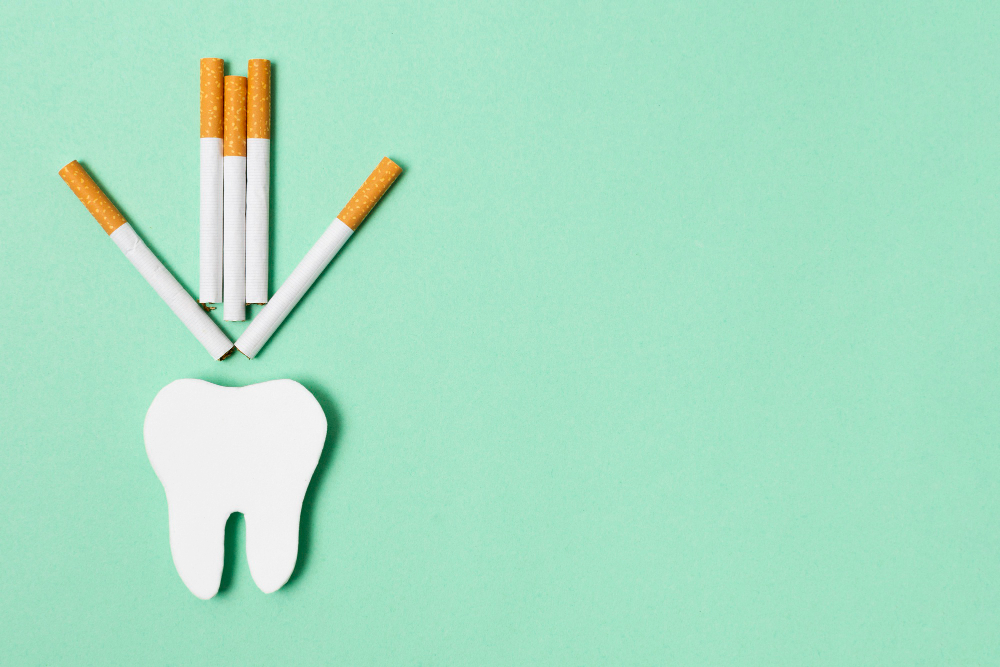
When most
people think about the dangers of smoking, they often focus on lung cancer,
heart disease, or respiratory problems. However, smoking also has serious and
visible consequences for your oral health — especially your teeth.
In this blog
post, we’ll explore how smoking affects your teeth and why quitting is one of
the best things you can do for your smile.
1. Tooth Discoloration
One of the
first things people notice in smokers is stained teeth. Tobacco contains
nicotine and tar, which easily stick to enamel and cause yellow or brown
discoloration. Over time, no amount of brushing can remove these stains
completely, and professional whitening may be the only solution.
2. Bad Breath (Halitosis)
Smoking
causes dry mouth, reduces saliva production, and leaves chemical residues in
your mouth — all of which contribute to chronic bad breath. Even mouthwash
can't always mask the smell.
3. Gum Disease (Periodontal Disease)
Smoking
weakens your immune system, making it harder to fight off infections in your
gums. It also reduces blood flow, slowing down healing and increasing the risk
of gum disease. Smokers are significantly more likely to suffer from gum
infections, bleeding gums, and even tooth loss.
4. Tooth Decay
Smoking can
change the balance of bacteria in your mouth, promoting the growth of harmful
microbes that lead to plaque buildup and cavities. Combined with reduced saliva
(which normally protects your teeth), this can greatly increase your risk of
tooth decay.
5. Delayed Healing After Dental Procedures
Whether it’s
a tooth extraction, implant surgery, or gum treatment, smokers tend to heal
more slowly. The chemicals in tobacco interfere with the body’s natural healing
process, increasing the chances of complications after dental work.
6. Increased Risk of Oral Cancer
Perhaps the
most serious oral health risk related to smoking is cancer. Smoking is one of
the leading causes of oral and throat cancer. Regular dental check-ups are
essential for early detection, but quitting smoking remains the most effective
prevention method.
What Can You Do?
The best
thing you can do for your teeth — and your overall health — is to quit smoking.
If you’re not ready to quit, talk to your dentist about extra care you can take
to protect your teeth and gums. Regular dental cleanings, good oral hygiene,
and a healthy diet can help minimize some of the damage.
